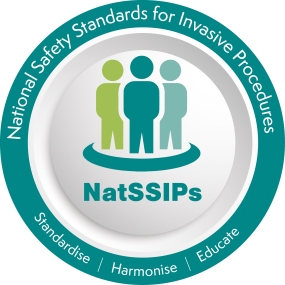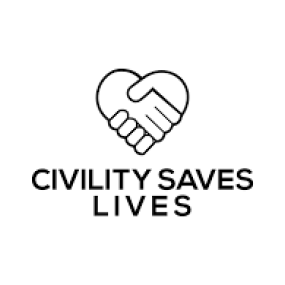Behaviour in the Perioperative Care Team
The culture within surgery can be poor and bad behaviours persist. This is bad for the wellbeing and retention of staff. It is also bad for patient safety. CPOC is uniquely placed to bring together excellent resources created by CPOC Board members and others. As with any change, improving behaviour needs an understanding of “WHY” and “HOW”.
Why
Good behaviours create a good culture.
The extent and impact of poor behaviours around surgery is huge. Individual staff suffer. Poor behaviours create a negative culture. Conversely, good behaviours create a lovely working atmosphere – staff feel able to contribute and confident in the care pathways. The entire team working well together and anticipating issues is good for patient empowerment.
- Co-workers reduce productivity 20% on witnessing rudeness.[1]
- 48% of recipients of poor behaviour reduce their time at work.[1]
- 30% of women surgeons experience sexual harassment.[2]
- 91% of women doctors experience sexism regularly.[3]
- 17% of staff from BAME background experience discrimination from other staff.[4]
- Poor behaviours mean staff leave or do not perform at their best.
- Many Serious Untoward Incidents for patients have poor team-working as a contributory factor.
- 54% of departments with poor surgical results have individual bad behaviours.[5]
- Diverse teams work better.
- Harassment is illegal.
- It is possible to change behaviours.[6] [7]
- Impact is important (even if no bad intent).[6]
- No one is too important to be polite.
How
Change is possible. There are patterns of behaviour. Some interventions work well. We can learn.
- There are actions for individuals. These include: showing respect, being clear, and being allies and active bystanders when they see poor behaviour.
- There are actions for organisations. These include: fostering good team-working, meeting across professions, creating pathways together, having clear standards, showing visible, inclusive leadership, providing induction and education, and following up on patterns.
- The NatSSIPs resources explain the expectations for interventional teams and stop moments during each invasive procedural session. The Team Brief resource shows how to create a team for the session. Team-working and interactions should be nurtured across all staff groups – clinical, administrative, managerial and support staff and across sectors and patient care pathways.
To quote Simon Fleming, who started the “#HammerItOut” campaign to reduce bullying in surgery: "I ask people to do both the hardest and easiest thing in the world; to change their culture by changing themselves. Be kinder. Say thank you. Think before you speak. Be mindful of the feelings of others. Try to be better. Apologise when you aren’t. Because if we can change ourselves, this is how we change the world."
- Respect each person
- Encourage focus on the patient
- Give feedback on task not person
- Know colleagues' name and role
- Anticipate and communicate challenges
- Include others
- Be aware of stressors and ways to reduce
- Be an ally
- Active bystander training
- Call out instances of poor behviour: "I notice you are stressed, is there anything the team can do to help?"
- Be ready for a (private) cup of coffee conversation
- Hold meetings across professional groups
- Foster team-working
- Identify patterns and opportunities for change
- Be explicit that poor behaviour will not be tolerated
- Reduce stress
- Set up standard care pathways with staff - and explain when these should be individualised
- Have inclusive visible leadership
Resources

Read the NatSSIPs 2 summary of Organisational and Sequential standards.

Read the CPOC National Safety Standards for Invasive Procedures (NatSSIPs) 2 Team Brief.
The procedural multidisciplinary Team Brief is a key element of practice in the delivery of safe patient care in invasive procedure pathways, and forms part of the WHO Surgical Safety Checklist the Five Steps to Safer Surgery and now ‘The NatSSIPs Eight’.
Engagement with the Team Brief is a required behaviour in the delivery of safe care and is a demonstration of mutual respect to the multidisciplinary team and an aspect of professionalism. It shows a commitment to the importance of communication for patients, staff and patient safety.

RACS has developed a range of information and resources about discrimination, bullying and sexual harassment.

The Royal Australasian College of Surgeons (RACS) Speak Up has been developed with reminders on how to have a cup of coffee conversation.

- The Royal College of Surgeons of Edinburgh have developed an anti-bullying and undermining resources hub aimed for all surgical and dental professions.
- As part of their wider work on the culture in surgery, the RCSEd launched a 'Lets remove it' hub focused on anti-bullying, undermining resources and sexual misconduct in surgery.

View the Royal College of Surgeons of England good practice guide on Avoiding Unconscious Bias, A Guide for Surgeons written by CPOC Deputy Director Professor Scarlett McNally.

Teach or Treat from the Royal College of Obstetrics and Gynaecology is a communication strategy which encourages a discussion about the clinical situation being escalated: initiating a kind, quick and respectful response.

The Royal College of Surgeons of Edinburgh Code of Conduct reflects the College values and sets out the expected standards of ethics, probity and behaviour expected from the membership of the RCSEd.

The Royal College of Surgeons of England Code of Conduct ensures adherence to the highest standards of professional and ethical behaviour in alignment with Good Surgical Practice. This includes tackling sexual misconduct, aligned to the Colleges work on sexual misconduct in surgery.

The British Medical Association Sexism in Medicine Report, based on a survey of nearly 2.5 thousand doctors, highlights an issue of sexism in the medical profession.

Civility Saves Lives has been set up by healthcare professionals aiming to raise awareness of the power of civility in patient care and the impacts of incivility on teamwork and patient outcomes.
The Working Party on Sexual Misconduct in Surgery are a group of committed NHS surgeons, clinicians and academic researchers who are working to raise awareness of sexual misconduct in surgery, to bring about cultural and organisational change.
WPSMS published Breaking the Silence, Addressing Sexual Misconduct in Healthcare showing over 80% of surgeons had witnessed sexual harassment.

The 2022 Workforce Race Equality Standard (WRES) report is the seventh publication, since the WRES was mandated and covers all nine indicators. WRES Indicator 8 specifically details the percentage of staff experiencing discrimination at work from other staff in the last 12 months.

The #KnockItOut – tackling workplace bullying, harassment and undermining hub is the Association of Anaesthetists campaign and resources hub to address unprofessional behaviour.

The Royal College of Nursing have pulled together a wealth of resources on their bullying and harassment pages.
Online Learning
The Royal College of Surgeons of Edinburgh operate the Non Operative Technical Skills for Surgery (NOTSS) course.
The Royal College of Surgeons of Edinburgh host a one day course Addressing Conflict in Surgical Teams (ACT). This is delivered by surgeons for surgeons and surgical teams.
The Royal College of Obstetrics and Gynaecology in collaboration with RCOG, Royal College of Midwives, Civility Saves Lives and Royal College of Surgeons of Edinburgh, host the Workplace Behaviour Toolkit.
The toolkit is comprised of 8 modules, and designed to be user-centred.
It includes tools to:
- support the development of positive workplace culture
- support you when you encounter poor workplace behaviours
- strengthen your skills and confidence in 'speaking up'
- promote an understanding of what poor workplace behaviour looks like and its impact on individuals, teams, organisations and importantly the women and families we care for.

